Cornwall temperature hits record high of 36C
- Published
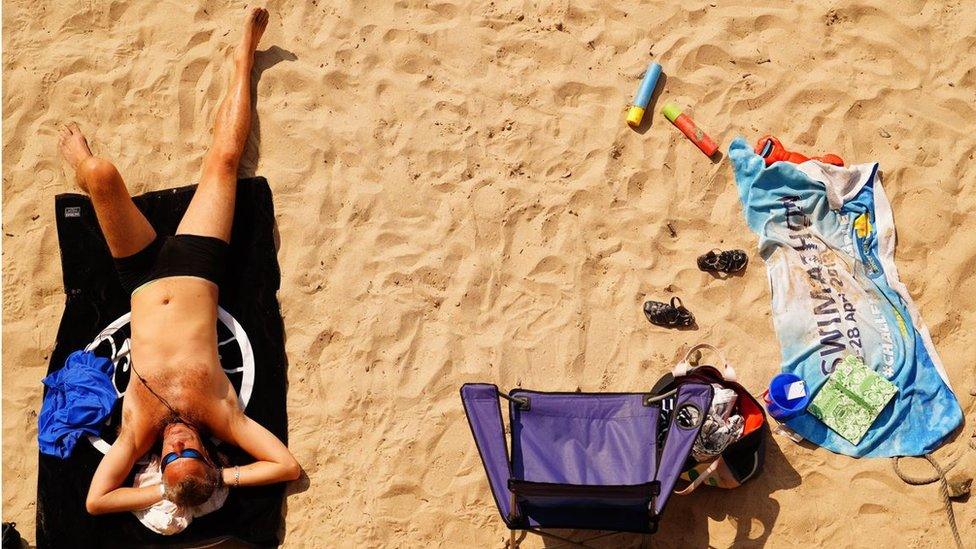
Heat-seekers hit the beach in Mousehole, Cornwall
Temperatures have soared to a record high for Cornwall of 36C (96.8F).
The record-beating heat in Bude topped the previous high for Cornwall of 33.9C (93F) in June 1976.
The highest temperature in Devon was 35C (95F) in Chivenor, just shy of the previous record of 35.4C (95.7F) at Saunton Sands in August 1990.
Prince Charles said on a visit to Cornwall that there was a "genuine emergency" for Cornwall, the UK and the rest of the world.
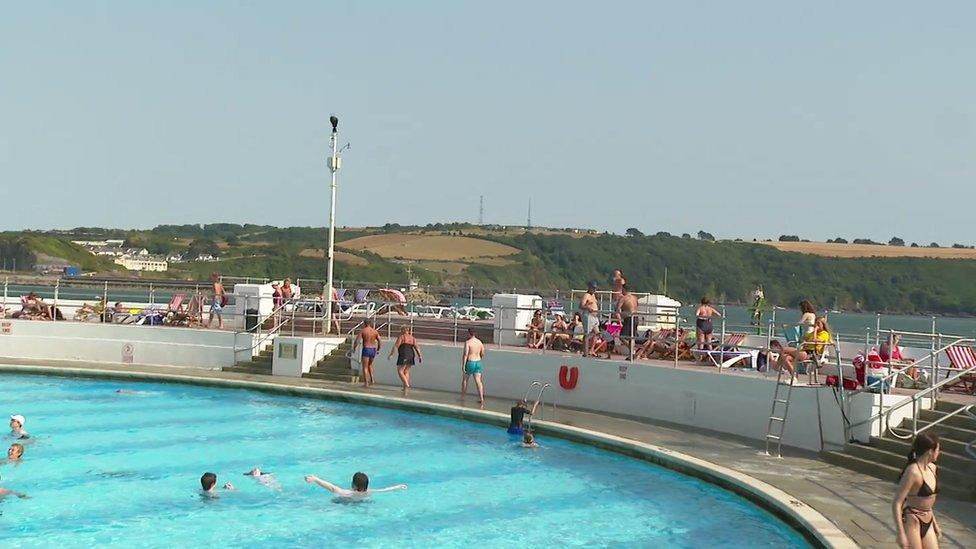
Plymouth people beat the heat at the city's seafront lido
Tuesday is also expected to be very hot, with an amber warning, external issued by the Met Office across Devon and Cornwall.
In Plymouth, the temperature hit 34C (93F) as city dwellers sought respite in the seafront lido where the water was a relatively cool 22C (72F).
Temperatures are expected to drop on Wednesday as Atlantic winds replace the winds from the continent.
The Duke of Cornwall, on a three-day visit with the Duchess of Cornwall, said at a garden party in the grounds of Boconnoc House, near Plymouth: "If I may say so, those commitments around net zero have never been more vitally important as we all swelter under today's alarming, record temperatures across Britain and Europe.
"As I have tried to indicate for quite some time, the climate crisis really is a genuine emergency and tackling it is utterly essential, for Cornwall, the country and the rest of the world."

Analysis: David Braine, BBC Spotlight weather forecaster
Temperatures above 30C (86F) are quite rare for Cornwall and Devon - we have a long coastline and nowhere is too far away from the sea. This means mild winters and comfortable summers.
Today, we have reached 36C (96.8F) in Bude, Cornwall, and 35C (95F) Chivenor, Devon. A new ,record for Cornwall, beating the previous high of 33.9C (93F) in June 1976.
We would not normally get so hot, but there are some topographical effects: the advection of hot air from France and the prolonged dry, very warm spell warming the ground and buildings.
These combined are pushing temperatures up to exceptional levels. Overnight temperatures may not fall much below 23-25C (73F-77F).
On Tuesday, a weather front will bring cooler Atlantic air across us, it also gives us a risk of thundery showers.
By Wednesday, we will be back down to a more comfortable 20-22C (68F-72F).

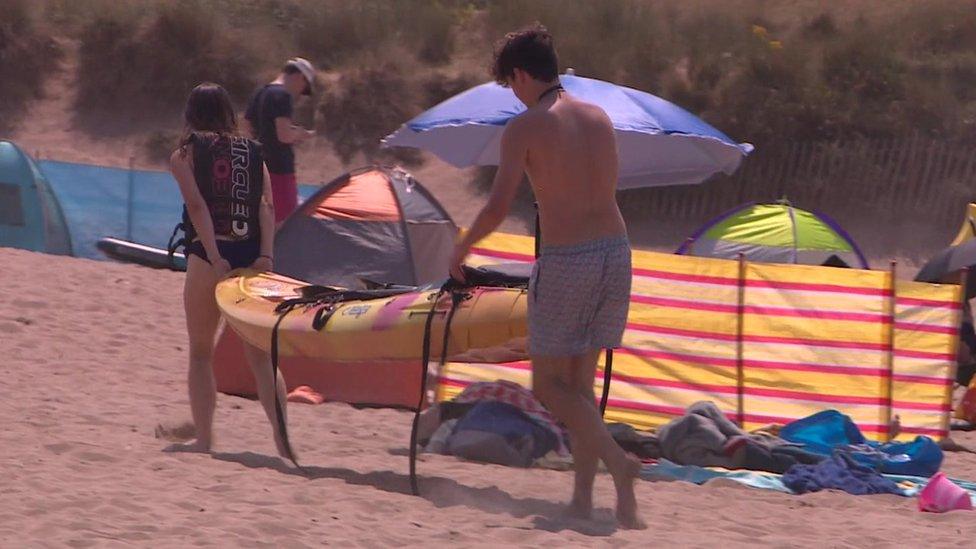
The RNLI at Bantham in Devon issued advice on how to beat the heat
Both Great Western Railway and South Western Railway have been operating reduced train timetables.
They said services may be cancelled at short notice, while some journeys would take longer because of speed restrictions.
Slowing trains down kept the tracks cooler and reduced the risk of them buckling, operators said.
Gritters have also been out, dispersing dust to stop road surfaces from melting.
Luke Lane Prokopiou, RNLI supervisor at Bantham beach in Devon, said: "It's really important that you pack plenty of sun cream, stay hydrated and make sure you pack plenty of protective clothing, sun hats, sun glasses and long-sleeve T-shirts.
"Also, make sure you have some shade such as am umbrella or windbreak."

Follow BBC News South West on Twitter, external, Facebook, external and Instagram, external. Send your story ideas to spotlight@bbc.co.uk, external.
- Published18 July 2022
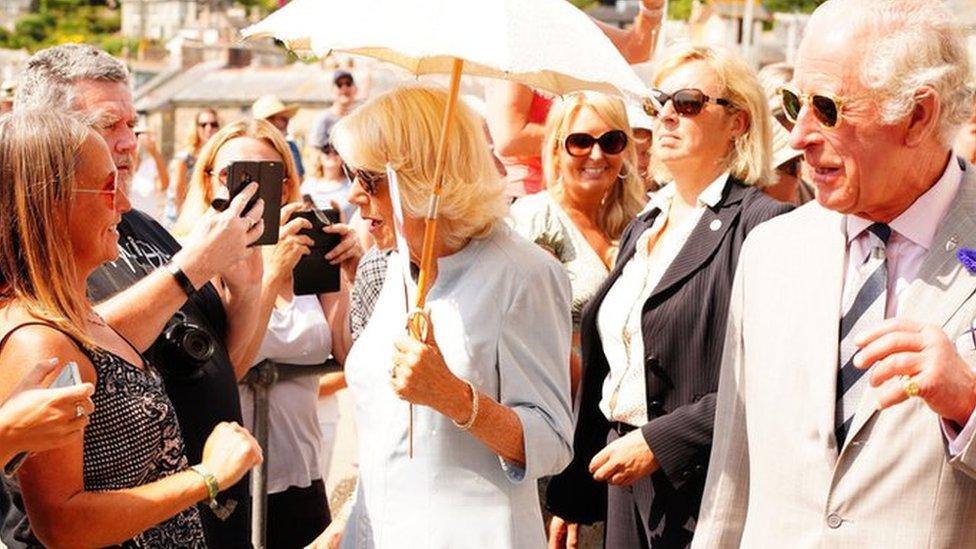
- Published18 July 2022
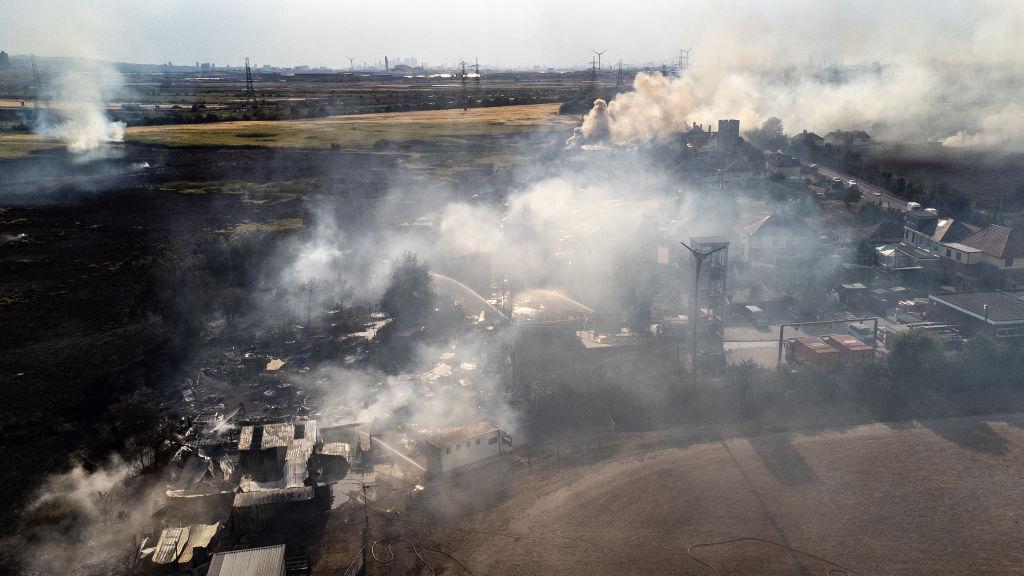
- Published18 July 2022

- Published18 July 2022

- Published18 July 2022
